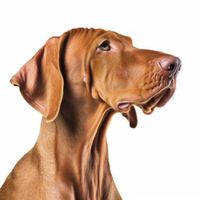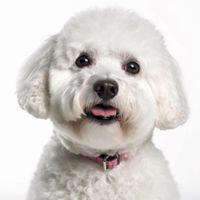American Staffordshire Terrier - vs - Vizsla - vs - Bichon Frise
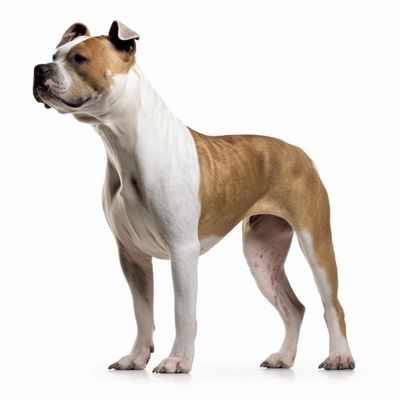
American Staffordshire Terriers are medium-sized dogs, weighing 40-70 lbs, with a height of 17-19 inches.
American Staffordshire Terriers have a high energy level and require regular exercise to stay happy and healthy.
American Staffordshire Terriers need a significant amount of exercise, including daily walks, runs, and interactive play sessions.
American Staffordshire Terriers are intelligent and trainable but can be stubborn at times. Consistent, positive reinforcement is key.
American Staffordshire Terriers are highly intelligent dogs and can excel in various dog sports and activities.
American Staffordshire Terriers can adapt to different living situations, but they need a responsible owner and consistent training.
American Staffordshire Terriers can be good with children when properly socialized and supervised. Their strength and energy require caution around small children.
American Staffordshire Terriers may have a strong prey drive and can be aggressive toward other pets. Early socialization and proper training are necessary.
American Staffordshire Terriers can tolerate colder temperatures, but they still need proper protection during extreme cold.
American Staffordshire Terriers can tolerate hot climates, but they need to be monitored for signs of overheating during exercise.
American Staffordshire Terriers have a short coat and shed minimally, making grooming relatively easy.
American Staffordshire Terriers require minimal grooming, including occasional brushing and bathing to keep their coats clean and healthy.
American Staffordshire Terriers have average bark tendencies and may bark for various reasons, such as alerting their owners or during playtime.
American Staffordshire Terriers may experience some health issues and require additional care and attention, such as regular veterinary checkups, preventative care, and potential medication or treatments.
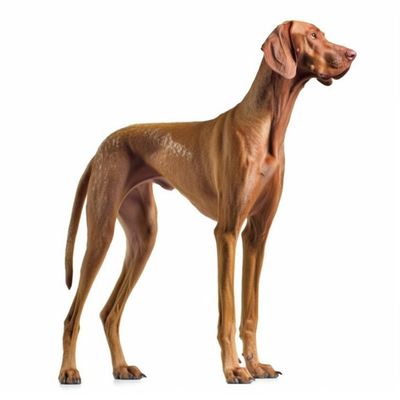
Vizslas are medium-sized dogs, weighing 45-65 lbs, with a height of 21-24 inches.
Vizslas have a high energy level and require plenty of exercise and mental stimulation.
Vizslas need a significant amount of exercise, including daily walks, runs, and interactive play sessions.
Vizslas are intelligent and eager to please, making them easy to train with positive reinforcement.
Vizslas are highly intelligent dogs and excel in various dog sports and activities.
Vizslas can adapt to various living situations, but they thrive in active households that can provide ample exercise.
Vizslas are generally good with children when properly socialized and can be energetic playmates.
Vizslas can get along well with other pets, especially when raised together.
Vizslas have short coats and may not be well-suited to extremely cold climates without proper protection.
Vizslas can tolerate hot climates, but they need to be monitored for signs of overheating during exercise.
Vizslas have short coats and shed minimally, making them low-maintenance in terms of grooming.
Vizslas require minimal grooming, with occasional brushing and bathing to keep their coats clean and healthy.
Vizslas have average bark tendencies and may bark for various reasons, such as alerting their owners or during playtime.
Vizslas are generally healthy, but regular veterinary checkups and preventative care are still necessary.
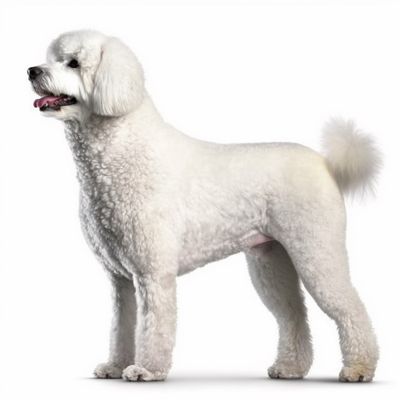
Bichon Frises are small dogs, weighing 10-20 lbs and standing 9.5-11.5 inches tall.
Bichons have a moderate energy level, enjoying playtime and cuddles in equal measure.
Daily exercise, like walks or playtime, keeps Bichons happy and helps prevent boredom.
Bichons are intelligent and trainable, but may require patience and consistency.
Bichons are smart dogs that enjoy learning new commands, tricks, and problem-solving.
Bichons adapt well to various environments, from apartments to larger homes.
Bichons are gentle, playful, and affectionate, making them excellent companions for children.
Bichons generally get along well with other pets, including dogs and cats, when socialized properly.
Bichons can tolerate cold weather, but it's important to provide proper shelter and warmth.
Bichons can handle warm climates, but ensure they have access to shade, water, and avoid excessive exercise.
Bichons have a low-shedding coat, making them a good option for people with allergies.
Bichons require regular grooming to maintain their curly coats, including brushing, trimming, and bathing.
Bichon Frises have average bark tendencies and may bark for various reasons, such as alerting their owners or during playtime.
Bichon Frises are generally healthy dogs but may still require regular veterinary checkups and preventative care.


